Effective keywords for healthcare websites include a mix of broad terms like "healthcare," long-tail phrases such as "pediatric care near me," and local keywords that focus on your geographic area. By integrating these keywords into your site's content, meta descriptions, and URLs, you enhance visibility and direct traffic to your services. Monitoring search trends and analyzing competitor strategies helps you stay ahead. Discovering the right keywords can greatly impact your patient outreach and engagement. There's much more to explore on this topic.
Understanding the Role of Keywords in Healthcare Marketing
 .
.
Have you ever wondered why some healthcare websites attract more visitors than others?
A key factor lies in the keywords they use.
Keywords act as the bridge connecting your services with potential patients searching for health-related information online.
Keywords serve as the vital link between your healthcare services and patients seeking health information online.
When you choose the right keywords, you're effectively speaking your audience's language, making it easier for them to find you amidst the vast digital landscape.
These keywords can reflect common health concerns, specific treatments, or even local services you provide.
By integrating them strategically into your content, you enhance your website's visibility on search engines.
This not only drives traffic but also builds trust and credibility with your audience.
Understanding the role of keywords is an essential step in effective healthcare marketing, as it can significantly impact your website structure and content and overall SEO success.
Types of Keywords to Consider for Healthcare Websites
When you explore into the world of healthcare marketing, you'll quickly discover that not all keywords are created equal. You'll want to evaluate a mix of different types of keywords for your strategy.
Start with broad keywords like "healthcare" or "medical services," which capture general interest.
Next, investigate long-tail keywords such as "pediatric care near me" or "affordable dental services," which target specific searches.
Don’t forget about local keywords, focusing on your geographic area to attract nearby patients.
Additionally, evaluate branded keywords that include your healthcare facility's name to strengthen brand recognition. Incorporating SEO strategies can significantly enhance your website's visibility in search engine results.
Researching and Analyzing Effective Keywords
 .
.
How do you find the right keywords that resonate with your target audience?
Start by diving into keyword research tools like Google Keyword Planner or SEMrush. These platforms help you uncover what potential patients are searching for. Analyze search volume, competition, and trends; this data reveals which keywords are worth pursuing.
Don’t forget to explore long-tail keywords, as they often capture more specific queries. Use Google’s "People Also Ask" feature to gain insights into related questions your audience might have.
Finally, consider your competitors—analyzing their keyword strategies can highlight gaps in your own efforts. By combining these techniques, you’ll be well-equipped to identify effective keywords that connect with your audience and drive relevant traffic to your healthcare website. Additionally, consider the unique needs of healthcare providers as this can inform your keyword strategy and enhance your messaging effectiveness.
Implementing Keywords Strategically on Your Website
To effectively implement keywords on your healthcare website, you’ll want to strategically place them in key areas that matter most for both search engines and your audience.
Start with your page titles and meta descriptions; these are often the first things users see in search results.
Integrate keywords naturally into your headers and throughout the content, ensuring it flows smoothly for readers.
Don’t forget the alt text for images and the URLs, as these also play a role in SEO.
Additionally, consider using keywords in your blog posts to provide valuable information while improving your rankings. Engaging with educational content can further enhance your site's authority and attract more visitors.
Monitoring and Adjusting Your Keyword Strategy Over Time
 .
.
Implementing keywords is just the beginning of your journey toward a successful healthcare website.
To truly thrive, you need to monitor and adjust your keyword strategy regularly.
Start by analyzing your website’s analytics to see which keywords are driving traffic and which aren’t performing.
Don’t hesitate to experiment with new keywords as trends evolve; healthcare is constantly changing, and so are patient needs.
You should also keep an eye on competitor strategies—what keywords are they targeting?
By staying informed, you’ll assure your content remains relevant.
Periodically revisit your keyword list and refine it based on performance data.
With this proactive approach, you'll not only enhance your site’s visibility but also foster deeper connections with your audience. Additionally, leveraging data-driven personalization will help ensure your content aligns with patient expectations.
Frequently Asked Questions
How Do Keywords Impact Patient Engagement on Healthcare Websites?
Keywords greatly influence patient engagement on healthcare websites. When you use relevant terms, visitors find the information they need quickly, increasing their trust and likelihood of interacting with your services, ultimately enhancing their overall experience.
What Are Long-Tail Keywords, and Why Are They Important?
Long-tail keywords are specific phrases that target niche audiences. They’re important because they attract qualified traffic, improve search rankings, and enhance user experience, ultimately helping you connect more effectively with your audience and meet their needs.
How Often Should I Update My Keywords?
You should update your keywords regularly, ideally every three to six months. This keeps your content relevant, helps you stay competitive, and guarantees your audience finds the information they need when searching online.
Can I Use the Same Keywords Across Multiple Pages?
You can use the same keywords across multiple pages, but it's best to tailor them for each page's specific content. This helps improve relevance, boosts SEO, and enhances user experience on your website.
What Tools Help in Keyword Tracking for Healthcare Websites?
To track keywords effectively, you can use tools like Google Analytics, SEMrush, or Ahrefs. These platforms help you monitor rankings, analyze traffic, and optimize content, ensuring your healthcare website meets its goals.




